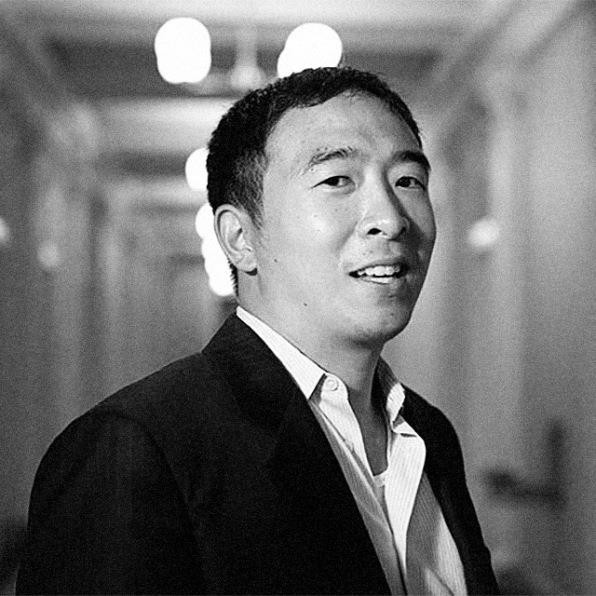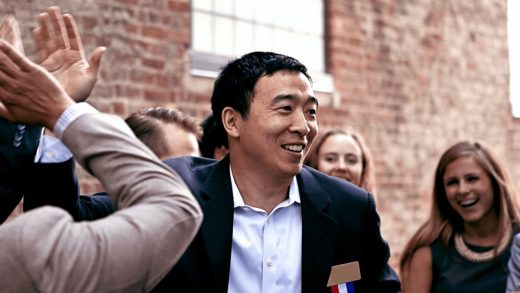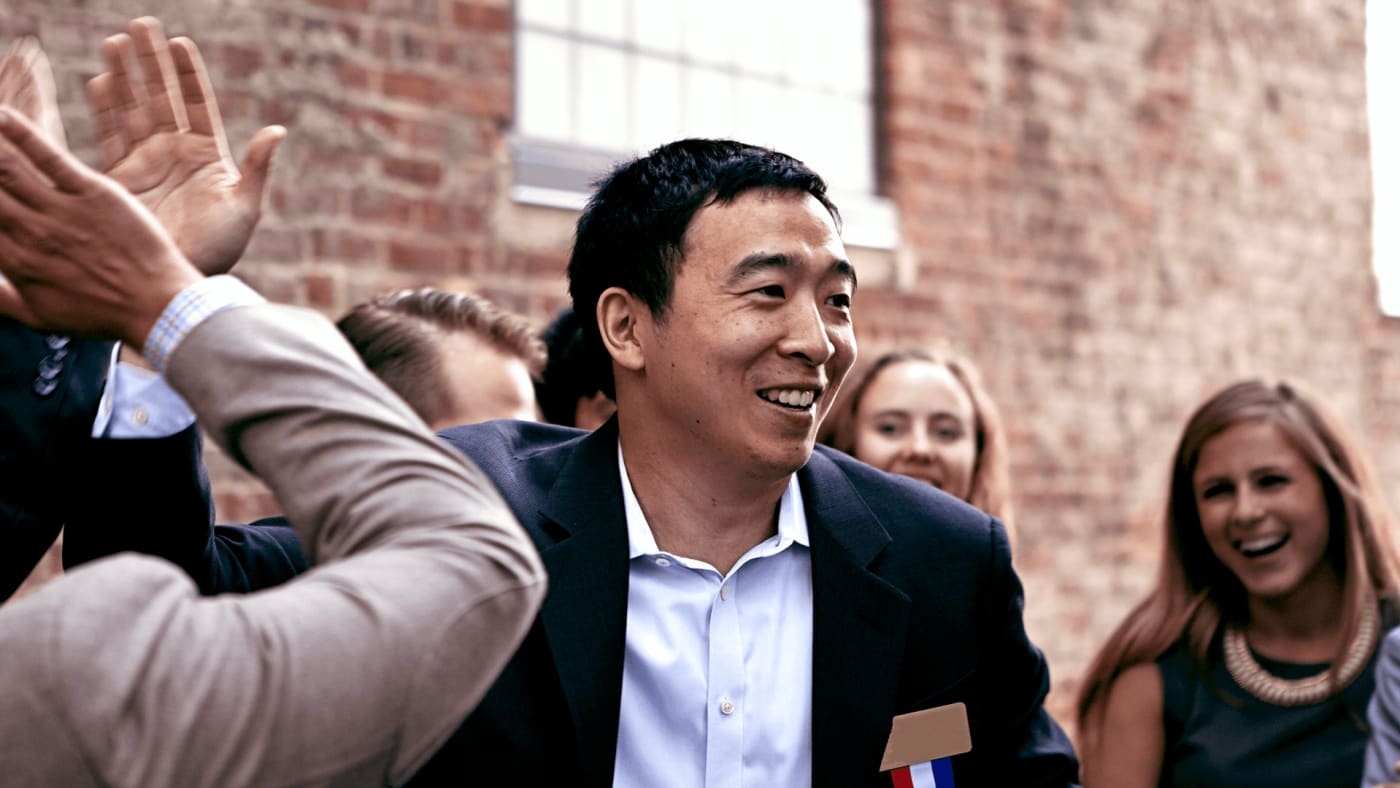Andrew Yang Wants You To Vote For A $1,000-A-Month Basic Income In 2020
Andrew Yang has a one word answer for why he’s running for president in 2020. It’s not Trump, or healthcare, or fame. It’s automation: the way in which machines are taking away jobs already and are set to take away many more in the future. “To me, this is an elephant in the room that’s stomping around and making a mess and everyone seems to be ignoring it,” he says.
Yang, a New York entrepreneur, sees machines taking away employment from retail store assistants, truck drivers, and call center workers–some of the most numerous job categories in the country–and before too long. Self-driving trucks are already rolling out of R&D labs and artificial intelligence is gunning for customer service jobs. In the not too distant future, Yang sees millions of Americans without the means to generate income and live a decent life.

Yang, the founder of Venture for America, a fellowship program for young entrepreneurs, may be a long-shot for president. But he does have a clear, arresting message. He is the automation candidate. Moreover, he has a plausible–though costly–solution to the problem. He would give every American who wanted it a basic income: $1,000 a month.
Basic income is an increasingly popular concept, both on the left and right, and particularly in Silicon Valley. Hillary Clinton toyed with the idea in 2016 before rejecting it as overly idealistic. Bernie Sanders has talked approvingly of it. But Yang is the first to actually run on it. As a long-shot candidate, perhaps it’s easier to propose something that most formal politicians think is impossible. Paying $1,000 a month to every American would cost at least $2 trillion a year and the burden would be carried by everyone, not just the well-off.
To pay for his plan, Yang proposes a value added tax–sort of like a sales tax, except it’s collected not only at the retail sales stage, but at any part of the production chain where goods are transferred. Many other countries have VATs instead of sales taxes, seeing them as a fairer way to tax commerce than our model, which puts all the burden on consumers at the end of the value chain.
Yang argues that a VAT is a better way of raising revenue in the extreme-automation age than income taxes–because well, you need people working jobs and generating incomes before you can have income taxes. “Income taxes are very poor at generating income from automation because the gains are realized by technology companies that are experts at not paying taxes,” he says.
Yang is promoting his candidacy with a new book called The War on Normal People. Another idea is a “social credit” scheme that rewards people for unpaid work, like looking after children or elderly parents, or doing community work. “The monetary market is going to value people’s time less and less as time goes on, so you need another way to structure their day that rewards them,” he tells Fast Company.
The credit system would be an alternative form of currency–“Amex points for good”–where good works have their own internal economy. For example, if you do something good for society–like coaching a Little League team–the local baseball club might reward you with tickets to one of their games.
It’s easy to be skeptical about such post-capitalistic ideas. But listening to Yang, I began to be convinced by the seriousness of the moment and the need for radical new programs. The economy isn’t working well for lots of people. Machines are likely to make things more difficult in the future, even if some of the more dire automation forecasts don’t come true. Entrepreneurship, always the answer to everything wrong in the job market, isn’t likely to take up the slack on its own. The rate of new business formation is at historic lows and it seems to be getting harder to launch startups, despite the impression given by the press.
“The state of entrepreneurship in America is very bleak and it’s being obscured by these giant digital companies that are upending industries,” Yang says. “We think of this as a time of innovation but there is a difference between new technology and people starting companies.” A basic income, worth $12,000 for every American, would give boost to people setting up small businesses, even if those businesses are more artisanal than commercial.
As for Yang’s candidacy–it’s also a reason for skepticism. But we’ve seen crazier things recently. “Most Americans agree that technology is going to eliminate many more jobs than it is going to create. My odds get better every day as people wake up to the world in which we live in,” he says.
(24)



